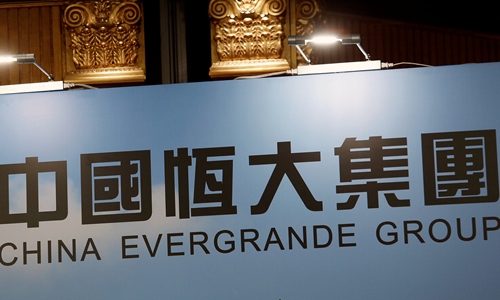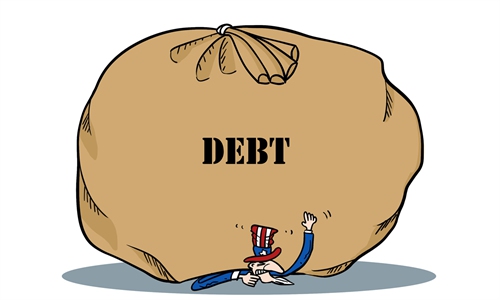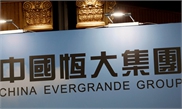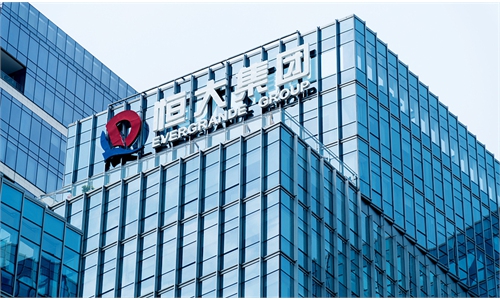
Evergrande Group. Photo: VCG
Ren Zeping, the former chief economist of Evergrande Group, offered an explanation on his WeChat account on Monday about why he left the company, saying his suggestions about reducing liabilities had not been accepted by the company leaders even though Evergrande's debt ratio had reached 86.25 percent.
Ren, who is now chief economist of Soochow securities, said that Evergrande can't attribute its debt woes to the situation in China's macro economy.
Ren said that not long after he joined Evergrande in December 2017 as an economic observer, he found that the company's debt ratio had risen significantly to 86.25 percent. However, the firm was still planning diversified expansion on a large scale.
Therefore, Ren advised reducing the debt and opposed diversification, but the company didn't accept his suggestions.
In 2019, Evergrande spent $23 billion to build production bases for New Energy Vehicles (NEVs), aiming to intensify pressure on US automakers amid the trade war. The company also launched a series of theme parks called Child Land in 2017, claiming that it might surpass Disneyland in scale.
Ren's statement also clarified some internet rumors about his comments on the property market. Ren said that he had never predicted in 2018 that home prices in China's major cities would triple in the next 10 years.
According to Ren, in the second half of 2020, he proposed leaving the company as he realized the government's determination to regulate the real estate sector. In April 2021, Ren said real estate is the hardest bubble to deal with, and called for reform to stabilize finance.
During his tenure at Evergrande, Ren's annual salary reached 15 million yuan, with only two executive directors of the company earning more.
As of June 30, Evergrande's total liabilities had swelled to 1.97 trillion yuan ($305 billion) on the back of 2.38 trillion yuan in total assets, per its interim financial disclosure at the end of August. The company's interest-bearing debts hit 571.7 billion yuan as of the end of June, among which debts due within a year stood at 240 billion yuan.
Global Times



